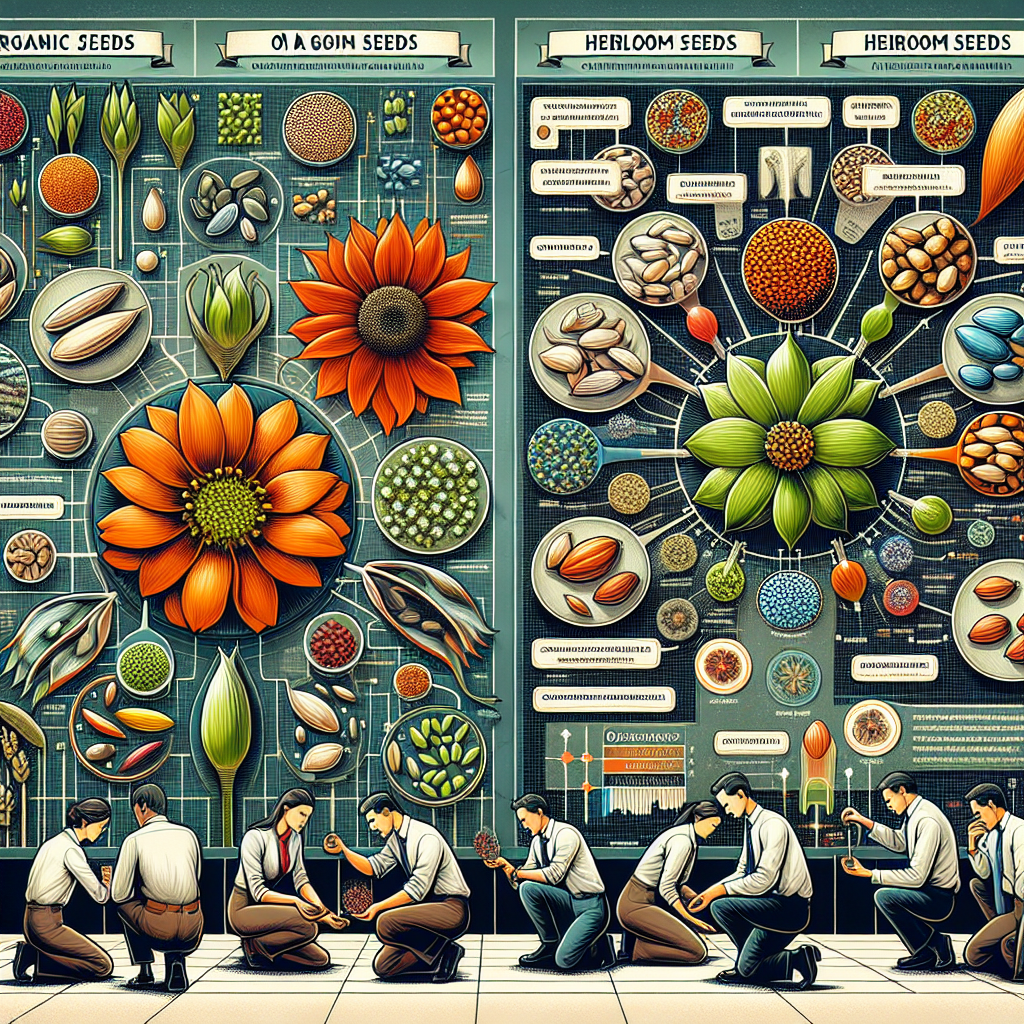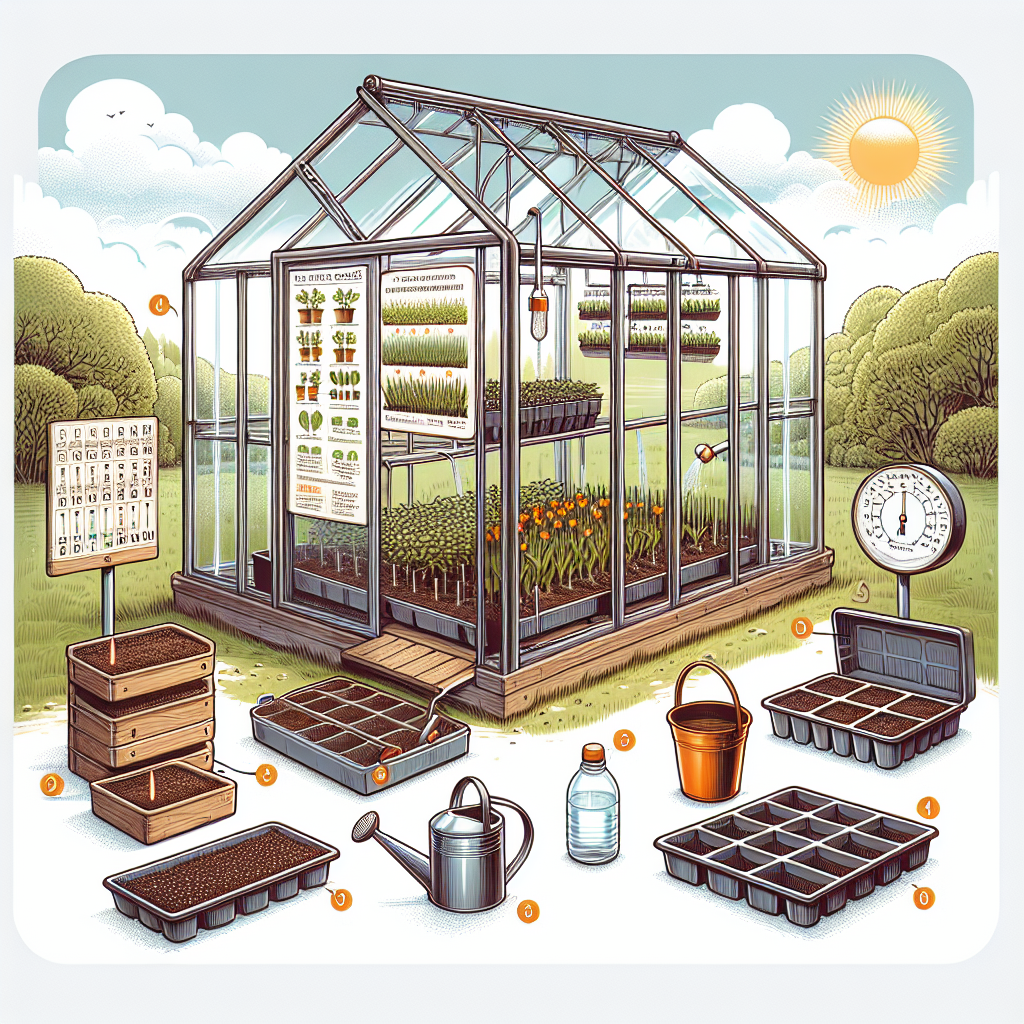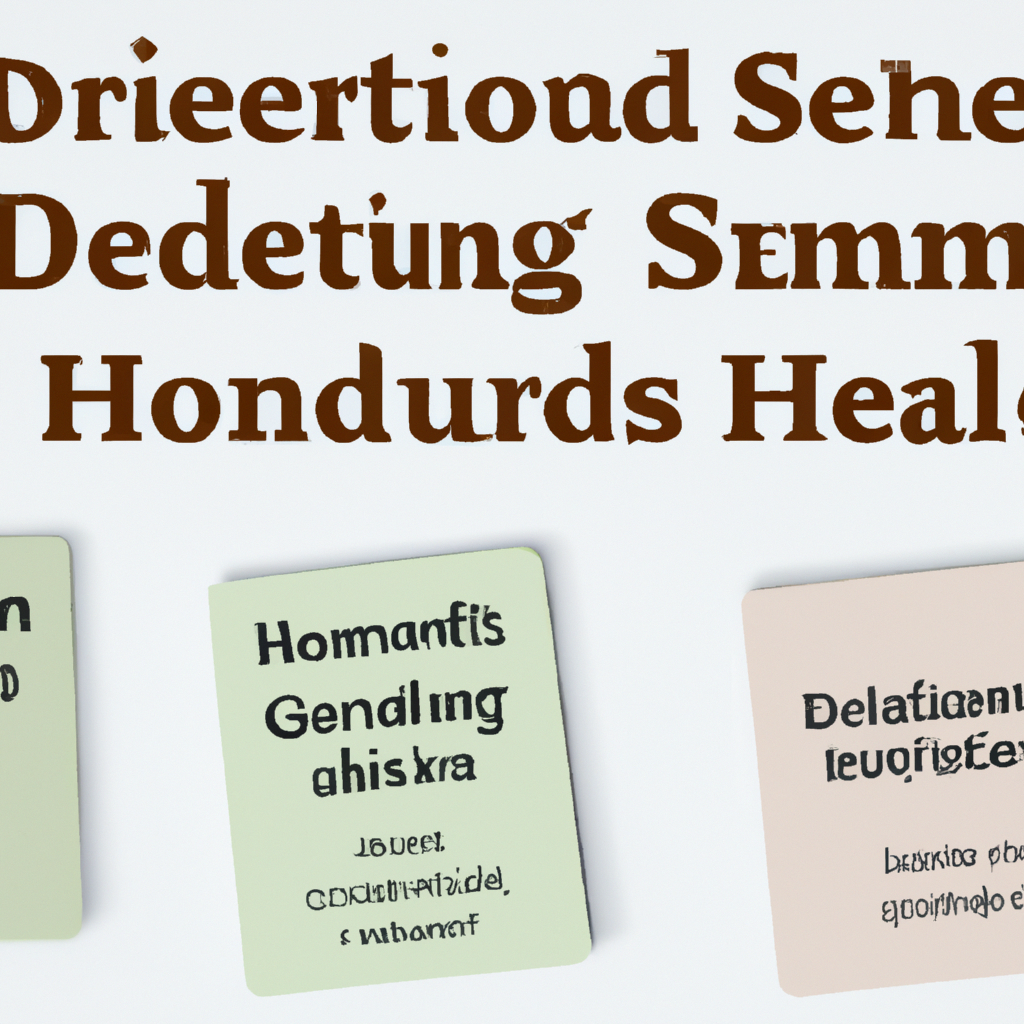Understanding the Difference Between Organic and Heirloom Seeds for Sale
When searching for quality seeds to start your garden, you may encounter terms like organic seeds and heirloom seeds. While both are popular among gardeners, they have distinct meanings and characteristics. This article explores the difference between organic and heirloom seeds for sale, clarifies related terminology, and helps you choose the best seeds for your garden.
What Are Organic Seeds?
Organic seeds are produced by plants grown according to organic agricultural standards, which prohibit the use of synthetic fertilizers, pesticides, and genetically modified organisms (GMOs). The plants producing these seeds are cultivated in a manner that supports soil health, biodiversity, and ecological balance.
- Certification: Organic seeds are certified by recognized organizations, ensuring they meet strict organic growing regulations.
- No Synthetic Chemicals: They are grown without artificial herbicides, fungicides, or pesticides.
- Non-GMO: Organic seeds are not genetically engineered or modified.
- Environmental Impact: Organic seed farming encourages sustainable agriculture and healthy ecosystems.
“Organic seeds are ideal for gardeners who want to maintain organic practices from the ground up.”
What Are Heirloom Seeds?
Heirloom seeds are open-pollinated varieties passed down through generations—usually at least 50 years or older. These seeds are prized for their genetic diversity, unique flavors, and historical significance. Unlike hybrid seeds, heirloom seeds breed true, meaning the plants grown from them will have the same characteristics as their parent plants.
- Genetic Heritage: Heirloom seeds preserve ancient plant varieties and cultural history.
- Open-Pollinated: Heirloom varieties rely on natural pollination from wind, insects, or birds, allowing you to save seeds for future planting.
- Diversity: They offer a broader range of colors, shapes, and flavors than commercial hybrids.
- Not Necessarily Organic: Heirloom refers to the plant’s lineage, not its growing method. Heirloom seeds can be grown conventionally or organically.
Organic vs Heirloom Seeds: Key Differences
| Feature | Organic Seeds | Heirloom Seeds |
|---|---|---|
| Definition | Seeds grown using organic farming methods | Seeds passed down through generations (50+ years) |
| Certification | Certified by organic organizations | No certification required |
| Genetic Consistency | May be open-pollinated or hybrid | Always open-pollinated, breeds true |
| Environmental Impact | Supports ecologically friendly farming | Preserves genetic diversity and heritage |
| GMO Status | Always non-GMO | Typically non-GMO, but check source |
| Seed Saving | Possible if open-pollinated | Encouraged and reliable |
LSI Keywords Related to the Difference Between Organic and Heirloom Seeds for Sale
While researching and buying seeds, you may come across LSI (Latent Semantic Indexing) keywords related to this topic, such as:
- Non-GMO seeds
- Open-pollinated seeds
- Hybrid vs heirloom seeds
- Seed saving
- Heritage vegetable varieties
- Organic gardening supplies
- Sustainable agriculture
- Best seeds for home gardens
- Certified organic seed catalogs
- Traditional seed varieties
Which Seeds Should You Buy?
Your choice between organic and heirloom seeds depends on your gardening values and goals. If you want to support environmentally friendly practices from seed to harvest, choose certified organic seeds. If you appreciate unique flavors, plant diversity, and seed saving, heirloom seeds are the way to go. Many gardeners combine both, opting for organic heirloom seeds—the best of both worlds.
Before you purchase, always check labels and descriptions to ensure you’re getting the seed type that aligns with your preferences. Whether you’re growing vegetables, herbs, or flowers, understanding the difference between organic and heirloom seeds for sale will empower your gardening journey.
Frequently Asked Questions
Can heirloom seeds be organic?
Yes, heirloom seeds can be certified organic if the parent plants are grown according to organic standards. Look for “certified organic heirloom seeds” when shopping.
Are all organic seeds heirloom?
No, organic seeds can be either heirloom, hybrid, or open-pollinated varieties. “Organic” refers to the growing method, not the plant’s genetic heritage.
Can you save seeds from organic or heirloom plants?
You can save seeds from open-pollinated and heirloom plants, as they breed true. Hybrid seeds, whether organic or not, may not produce identical offspring.
Conclusion
Understanding the difference between organic and heirloom seeds for sale is essential for making informed gardening choices. Organic seeds focus on sustainable growing methods, while heirloom seeds emphasize genetic heritage and diversity. Both have a valuable place in the garden, and the best choice depends on your priorities. Happy planting!



